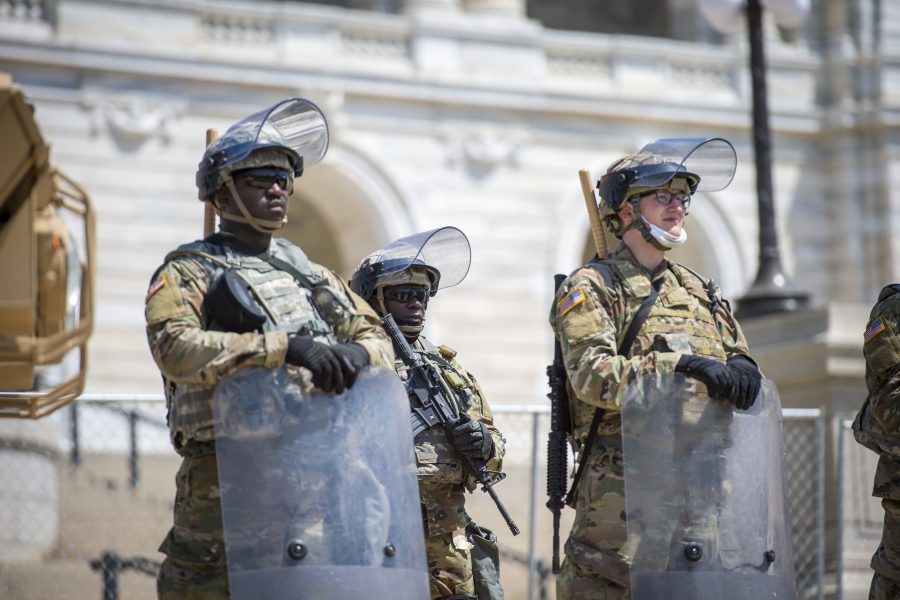Civil-unrest response efforts should be undertaken by law-enforcement authorities, not U.S. troops, National Guard Bureau Chief Air Force Gen. Joseph L. Lengyel said July 2 during an event hosted by the Brookings Institution think tank.
“In my opinion, uniforms, I don’t care what flavor they are—Title 10, Active-duty, National Guard, Reserve—uniforms being out there in law-enforcement situations is not optimal,” he told Brookings Senior Fellow Michael E. O’Hanlon during a live-streamed conversation about the state of the Guard. “We should do as little of it as we can, and it should be predominantly a law-enforcement, police operation and when they need us, we can and we will come. But we should do what we can to avoid that.”
According to Lengyel, Guard operations in response to civil disturbances that broke out across the nation after George Floyd died in police custody in Minnesota on Memorial Day are “beginning to recede.” However, he said, NGB is prepared to ramp its support of state governors and law enforcement authorities back up “should events turn sideways and our system need it.”
As of the morning of July 2, approximately 570 Guard personnel—including about 60 Air Guardsmen—were still activated in six states and the nation’s capital to back up law enforcement in case unrest broke out, NGB spokesperson Army Master Sgt. W. Michael Houk told Air Force Magazine via email.
“This is a significant drop from a peak of roughly 41,500 Air and Army Guard on duty at the beginning of June,” Houk wrote.
Lengyel also noted that investigations into the potential misuse of Guard air assets—including a District of Columbia Army National Guard helicopter and Air National Guard RC-26 aircraft—during the Guard’s unrest response are ongoing.
“Those ongoing investigations are still happening, and when they’re done, we’ll make sure everybody knows what they said,” Lengyel said.
Civil-unrest missions are the most challenging in NGB’s domestic portfolio, he said.
“Frequently, there are members of one family on one side of the line and other members dressed in civil riot gear on the other side, and it is a difficult, difficult situation for our men and women to be in,” he said.
Going forward, he said, the Guard will “train better” for these kinds of situations and equip its personnel with de-escalation techniques so they can feel more prepared for these kinds of operations.
